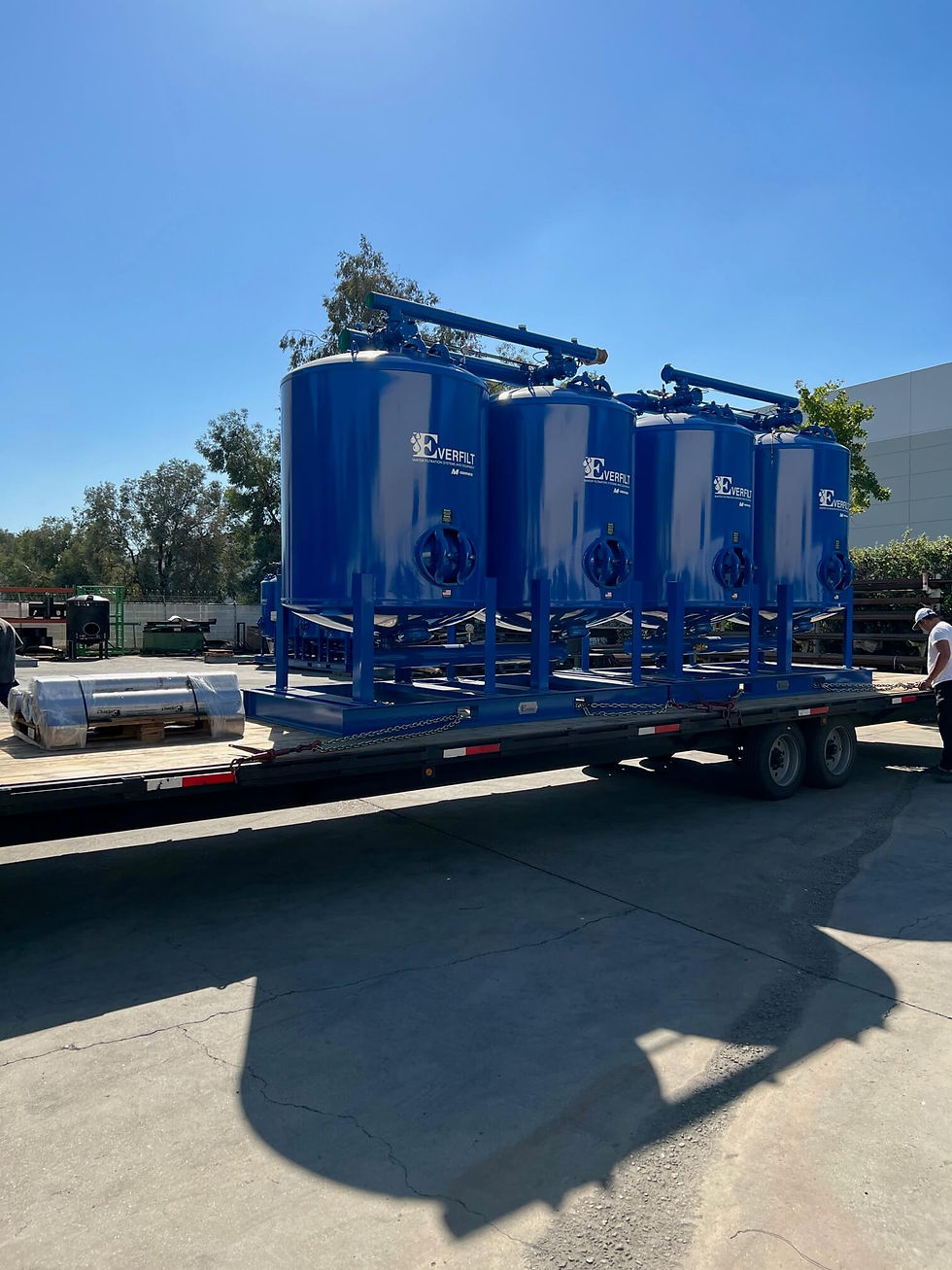Safeguarding Water Filtration Systems in Winter: Addressing the Challenge of Freezing
- Everfilt® Admin

- Nov 20, 2023
- 2 min read
Updated: Aug 6

Water filtration systems are indispensable for ensuring a reliable supply of clean and safe water across various industrial applications. However, the winter months bring forth a unique challenge for these systems— the potential freezing of water within their intricate components. This issue is particularly prevalent in sand media filters and other industrial media filters. In this article, we'll delve into the reasons behind the freezing problem, explore its potential repercussions, and emphasize the significance of effective mitigation and preparation strategies to protect water filtration systems during cold weather.
Understanding the Challenge:
The freezing of water within filtration systems is a significant concern when temperatures drop. As water solidifies, it undergoes expansion, generating pressure within the system. In systems like sand media filters and other industrial media filters, where complex networks of pipes and chambers are meticulously designed for optimal filtration, the expansion caused by frozen water poses a serious threat.
Consequences of Frozen Water in Filtration Systems:
Pipe Integrity at Risk:
The expansion of frozen water can lead to cracks or bursts in pipes, disrupting water flow and necessitating expensive repairs or replacements.
Compromised Filtration Efficiency:
The freezing process and subsequent expansion can damage the filter media, altering its structure and compromising the system's filtration efficiency. This compromise allows impurities to pass through, potentially contaminating the water supply.
Diminished System Longevity:
The stress induced by the freezing and expansion of water can significantly reduce the overall lifespan of water filtration systems. This places industries in a constant cycle of repairs and replacements, incurring substantial financial costs.
Mitigation and Preparedness Strategies:
Effective Insulation:
Proper insulation is paramount in preventing water freezing within filtration systems. Insulating pipes and vulnerable components helps maintain a consistent temperature, reducing the risk of freezing.
Strategic Heat Tracing:
The installation of heat tracing systems along pipes and critical components adds an extra layer of protection. These systems generate heat to prevent freezing, ensuring a continuous and reliable water filtration process.
Real-time Temperature Monitoring:
Incorporating temperature monitoring devices within the filtration system allows for immediate assessment of temperature variations. This enables proactive measures before temperatures drop to levels that could lead to freezing.
Comprehensive Winterization Protocols:
Implementing thorough winterization protocols is essential, particularly in regions prone to severe cold. These protocols should encompass regular inspections, maintenance routines, and the utilization of antifreeze solutions where applicable.
Navigating the challenges posed by cold weather is crucial for safeguarding water filtration systems from the freezing of water. By understanding the potential consequences and implementing proactive measures such as insulation, heat tracing, temperature monitoring, and comprehensive winterization protocols, industries can ensure a reliable and uninterrupted water filtration process even in the harshest winter conditions. These preventive measures not only protect the integrity of the filtration system but also contribute to the sustainable and efficient operation of industrial processes dependent on a clean and uncontaminated water supply.



